Neverending Learning
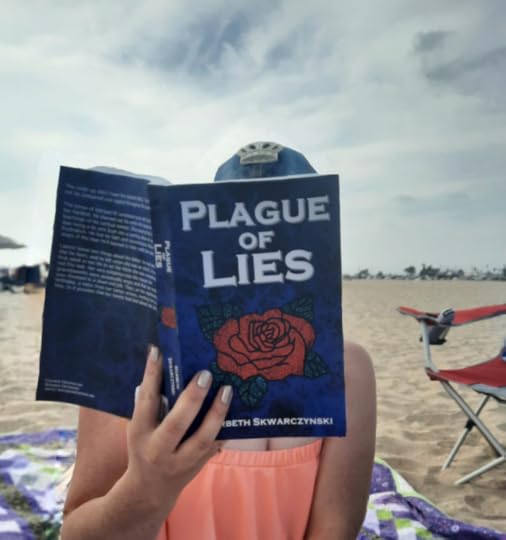
One of the unofficial mottos of my life has been “Never Stop Learning.” It isn’t so much about taking formal classes or setting lessons for oneself, as it is the open willingness to step outside of one’s comfort zone to try something new. Or to make oneself aware of learning opportunities that present themselves in the most mundane ways. I’ve learned many things from movies, television, music, and even board games, but of course, in a blog post by “The Lit Lady,” you know I stand firmly behind the idea that reading books is a primary aspect of education.
I grew up reading (and rereading) Laura Ingalls Wilder’s Little House series. That encouraged me, in turn, to read biographies of historical figures and classics. Reading information from books prompted me to engage more when I visited museums and gawked at items from the past. I was excited when I saw things I’d only read about and loved any hands-on exhibit that allowed me to experience old technology. I worked pitcher pumps and rail-way hand-cars and ground corn using a mortar and pestle. If characters in a book made bread, then I attempted it as well. I never got the knack of sewing like some of my early heroines, but loved embroidery. Like Marty in Love Comes Softly, I gave gardening a try. I learned to embrace and appreciate the quiet of solitude like the boy in My Side of the Mountain. I became a journaling fiend because of Harriet, the Spy.
The Little House (9 Volumes Set)Love Comes Softly (Love Comes Softly Book #1)My Side of the MountainHarriet the Spy: 50th Anniversary EditionThe hands-on moments both reinforced the pictures in my brain and gave me muscle memory to help me better empathize with the characters in the books and the people I met in the real world. As a teacher, I’d often have students attempt to recreate what they’d read in books. Usually, it was something simple. We made butter in mason jars by shaking heavy cream back and forth until it congealed while reading Little House in the Big Woods. I made them stacks of pancakes while they read Farmer Boy. As a teacher, I fully encouraged candy-eating while we read Charlie and the Chocolate Factory. We watched a YouTube tutorial on making Turkish delight when it came to The Lion, the Witch, and the Wardrobe. (Everyone was happy that we didn’t have to eat that.)
Charlie and the Chocolate Factory (Charlie Bucket Book 1)The Lion, the Witch and the Wardrobe (Chronicles of Narnia Book 2)In history classes, I had students create a coat of arms for themselves when studying Medieval European heraldry. We learned how to brew the perfect cup of tea, drinking the results while learning about the Boston Tea Party. Students ate peanuts and black-eyed peas while I lectured about the reconstruction era. They enjoyed candy invented during the Great Depression while playing Monopoly (did you know that Snickers was initially a five-cent meal-replacement bar?) and read an article about the economics of the progressive era before reading the symbolic treatment of the subject in The Wizard of Oz.
The Wizard of Oz (Puffin Classics)
I designed these hands-on moments to encourage students to look for alternate learning combinations in places they might not expect. I did it because engaging in multiple avenues of learning a subject worked well for me. When we learned about the events leading up to the destruction of the Spanish Armada, we watched the old Errol Flynn movie, The Sea-Hawk (correcting the usual Hollywood mistakes as we went). The subject of World War I demanded a viewing of All Quiet on the Western Front. World War II? The Boy in the Striped Pajamas. For the space age, I took to YouTube so we could watch the moon landing as it was televised back in 1969 (and I really regret that I didn’t think to break out the Tang at the time). We watched the Tet Offensive special from the Viet Nam War, the release of the hostages from Iran, and the tragedy of 9/11.
The Sea HawkAll Quiet On The Western FrontThe Boy In The Striped PajamasIt was my responsibility as a teacher to make that history come alive for my students. But, guess what? It was also the responsibility of the parents, the grandparents, the aunts, the uncles, the siblings, and cousins. Ultimately, however, it was the responsibility of the students themselves. Students picked up on this. They would tell me when a historical event we studied or a literary reference we’d covered appeared in their after-school lives. It might come in the form of a video game, a movie, a television show, a book, a comic. Or even at Knott’s Scary Farm, where the park based an entire attraction on the works of Poe. The seniors in my American Lit class couldn’t wait to tell me about that!
I’m no longer in a classroom, but I’m still teaching and learning.
This summer, we had a relaxing day at the beach with our kids and grandkids. It was everything wonderfully chaotic you could imagine from a beach trip. I had music playing on my phone. Various family members went to the shore to jump in the waves while others snacked and chatted, making themselves comfortable on blankets and chairs. Our grandson had been reading books about the ocean and its creatures, and he shared some things he’d learned about waves and tides. My daughter-in-law made the cousins into “mermaids,” telling them stories rife with mermaid lore. Our tool-crazed youngest grandson set himself to building sandcastles, experimenting with wet and dry sand as a foundation. We alternately discussed news events, family anecdotes, career changes, and plans for the near future. In short, we talked — constantly — enjoying the day together and including the kids in all of it.
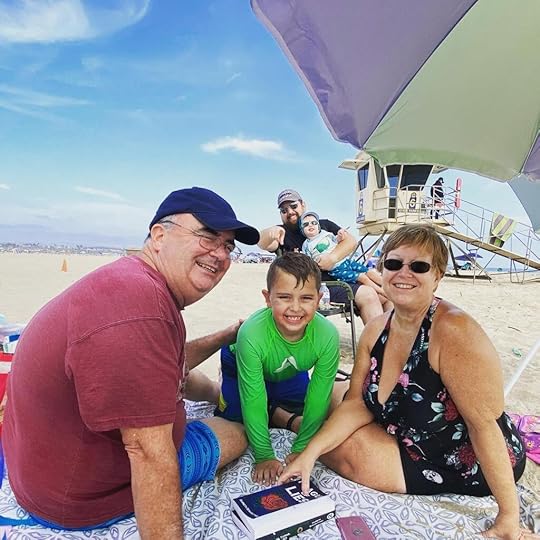
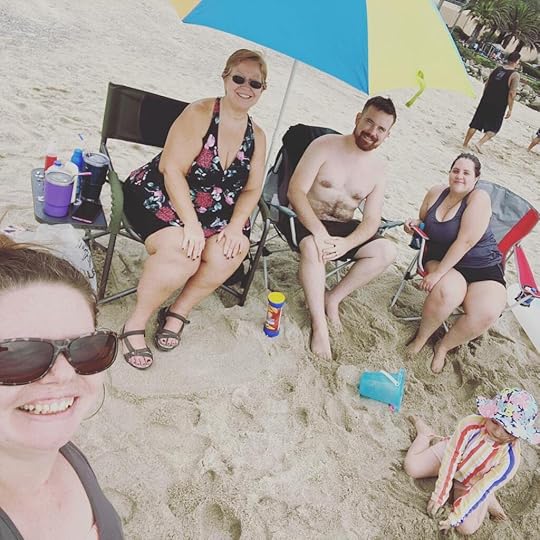
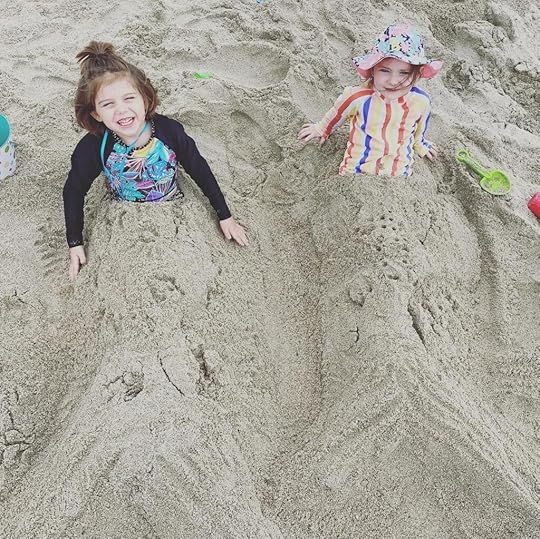
Later, we had pizza and ice cream before exploring the beautiful town of Laguna beach.
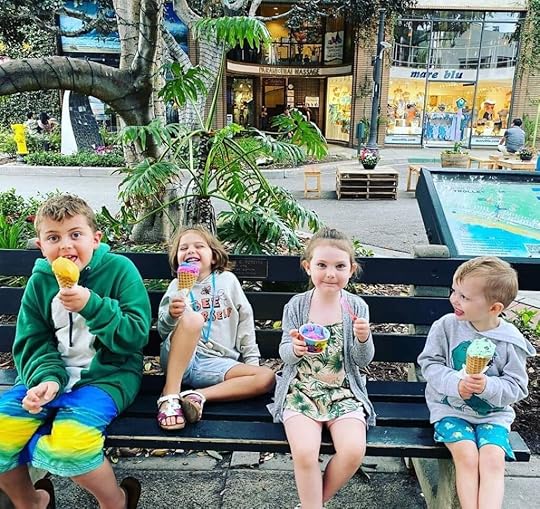
One of the best moments was discovering a “fairy village” next to the library. It was a beautiful, flower-filled little make-believe land that charmed the adults and the children alike. Grampa thought the kids were cute, but the magical miniatures? They were okay (he’s not a fantasy fan). Mama and Mimi, however, took each path with the littles, sharing the vast wealth of fairy knowledge we’d gleaned from J.M. Barrie and all who continued his story after him. “Don’t say you don’t believe in fairies! That will kill them! Quick, clap your hands to let them know you believe!” “Do you remember how fairies came to be? When the first baby laughed for the first time, the laughter broke apart in a hundred pieces, and fairies were born!” We answered so many sweet questions and asked many of our own while exploring the tiny beach, houses, and shops. We even discovered the fairy church (“St. Fairies by the Sea”), a library, and a post office.
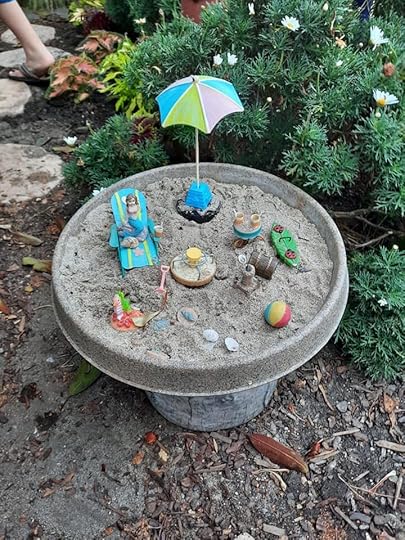
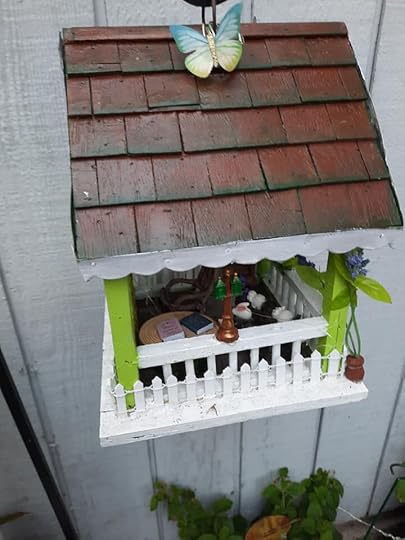
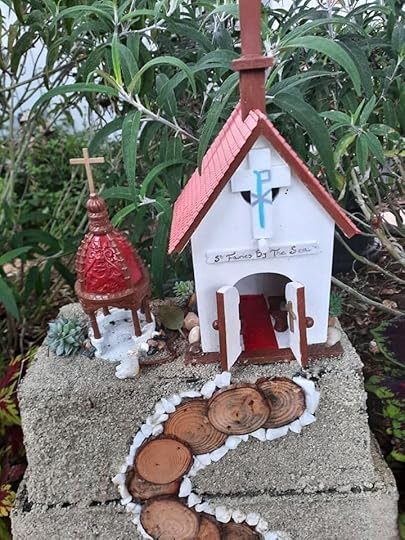
We left uplifted and excited, still firmly ensconced in the fantasy world provided by the library, leading to conversations about other fantasy lands we’d read about in favorite books.
On our way out of town that evening, we passed an English phone booth — an oddity both because we were in Southern California but also because phone booths of any type are rare finds these days. Our oldest grandson viewed the bright red box and asked, “Why did they need phone booths?” Our first response was to chuckle, not at his question, but at how things had changed. But, between the three adults in the car, I think we came up with a coherent explanation that there was a time when people didn’t have phones on their persons at all times.
And that’s when I realized how effortlessly we’d exchanged ideas, taught new information, and willingly learned all day long.
It would have been easy to laugh at our grandson’s query as an odd question asked by an inexperienced child, but it was hardly that. Instead, it was a person’s legitimate curiosity of a historical world he didn’t know. He asked for an answer without shame or false pride because he wanted that information. He wanted to learn. And because we had the answer, we wanted to share that data. That was our privilege as his teachers.
His wasn’t the only quizzical reaction to the “old world” that we got from our grandbabies this month. Because the grandkids were visiting us at my sister’s home, they were introduced to the sound of a landline phone. The first time my youngest granddaughter heard it ring, it sent her into a panic. What was this deafening alarm echoing throughout the house? And why weren’t any of the adults springing into action? It was time again for a history lesson and reassurance every time the phone rang after that.
Then came the oddity of cable television. “Mimi, I don’t want to watch this show.” “That’s a commercial, Sweetie. It’s almost over.” “Can we watch Peppa Pig instead?” “Um, no. It’s cable. We have to watch what the station chooses.” I had to do some fast talking to get them to look at PBS programming like it was an adventure.
The truth is, every generation must be “caught up” historically by the previous generation. When adults ignore or refuse to teach, the children and grandchildren that come after them miss out on valuable information.
My grandchildren embraced that responsibility when they asked us questions about phone booths, landlines, and cable this summer. We assumed it when we answered them as honestly and as clearly as we could. Our grandchildren know that they can ask their parents and grandparents any question, and we’ll respond to the best of our ability. We also tell them when we don’t know the answer. That in itself becomes a teaching moment as we cuddle close to Google information, learn something new, and then share it with anyone who wasn’t there for our moment of discovery.
Learning never ends, ever, but sometimes the desire to learn becomes muted. Information comes so quickly that it becomes a little scary — not for kids who are used to learning a half-dozen new things every day, but for the adults in their lives. As a result, we adults slow down and find ourselves suddenly out of the loop. So we have a choice: avoid anything new and become ever more entrenched in our comfort zones or take a hint from the children in our lives and ask questions with a willingness to learn. That means swallowing our pride and letting ourselves be taught. If you are lucky, you will meet some terrific teachers along the way. If you are extraordinarily fortunate, some of those teachers will be the children you love.
[image error]


